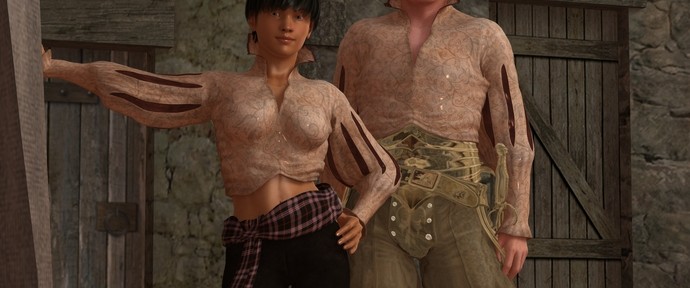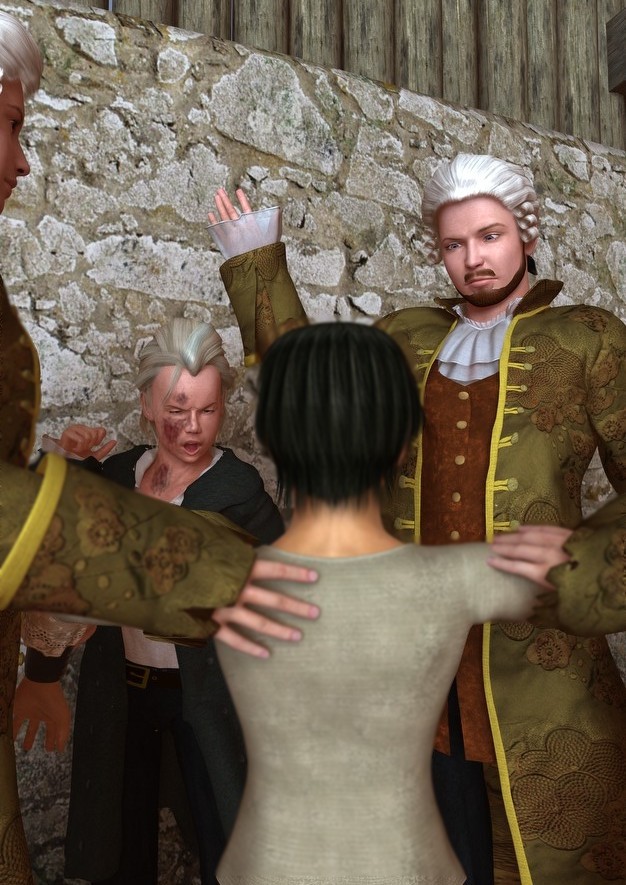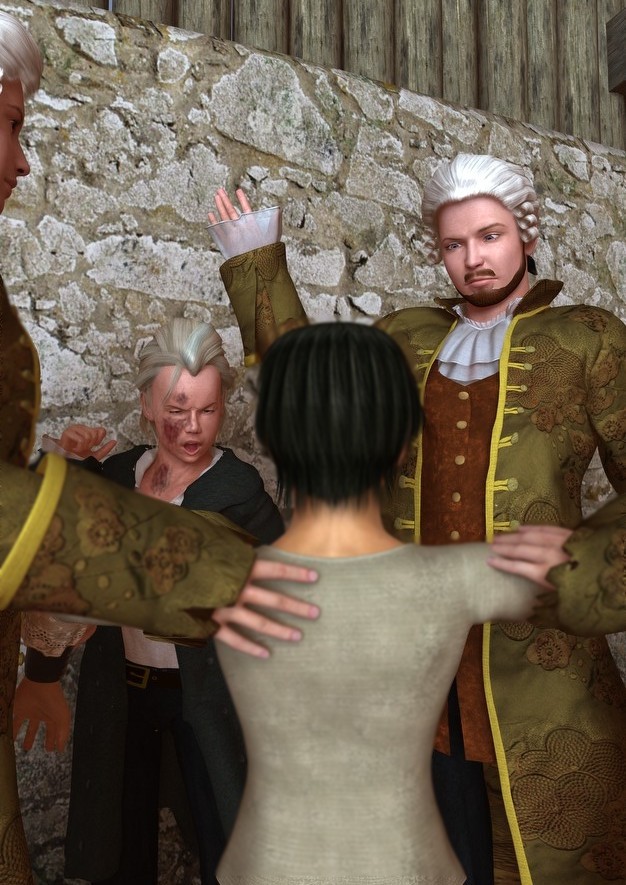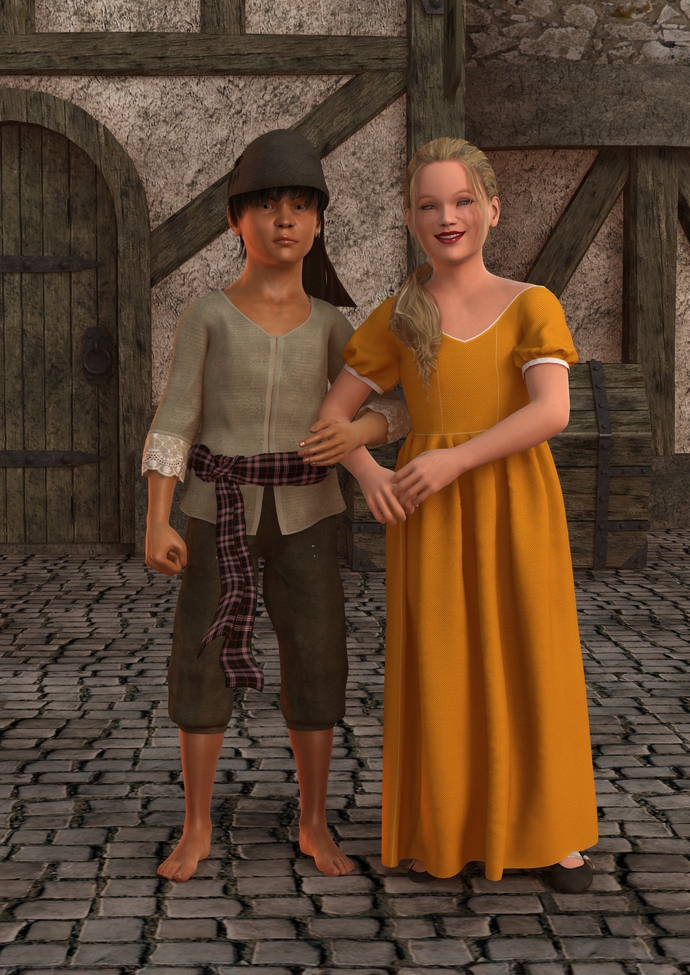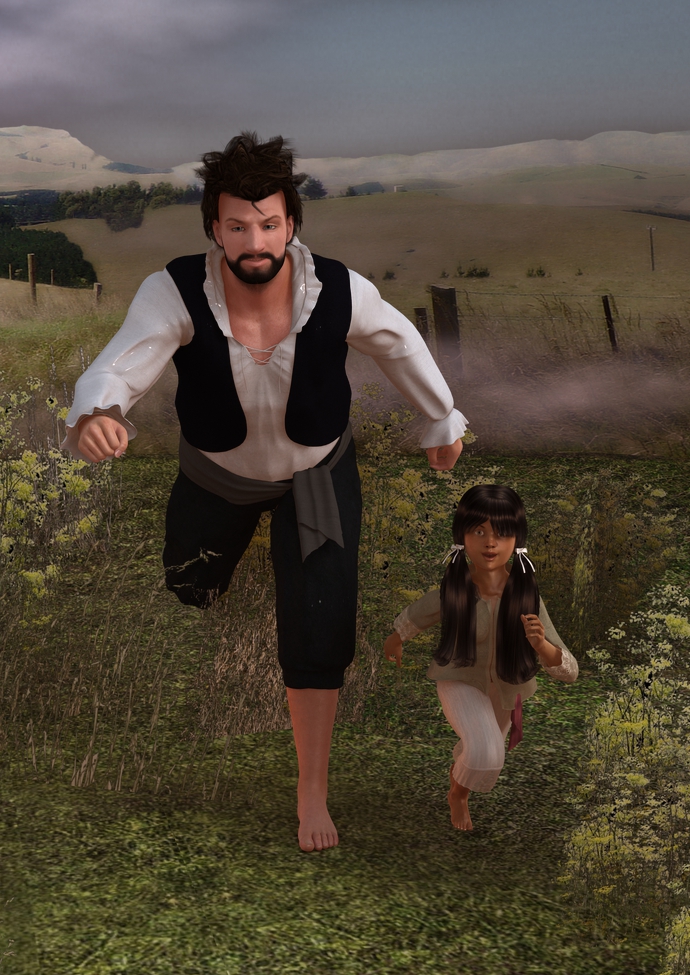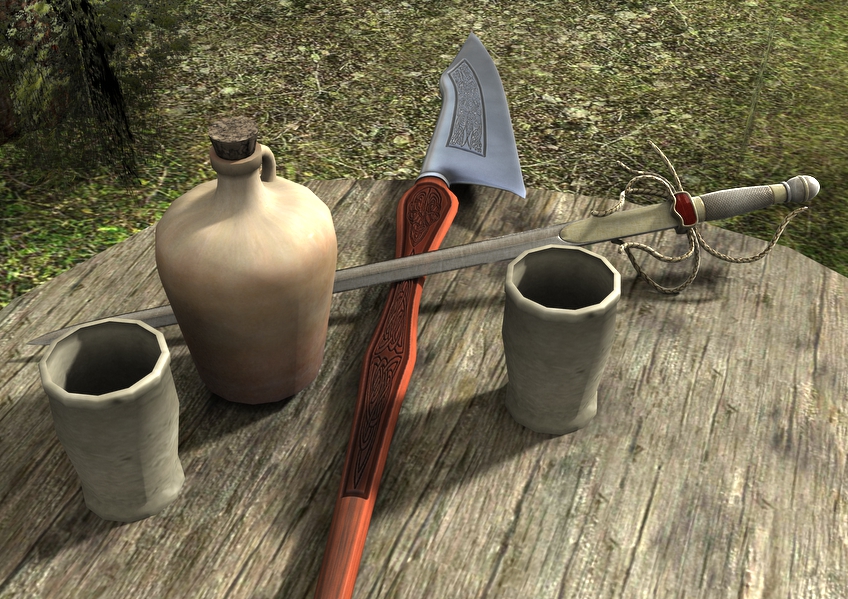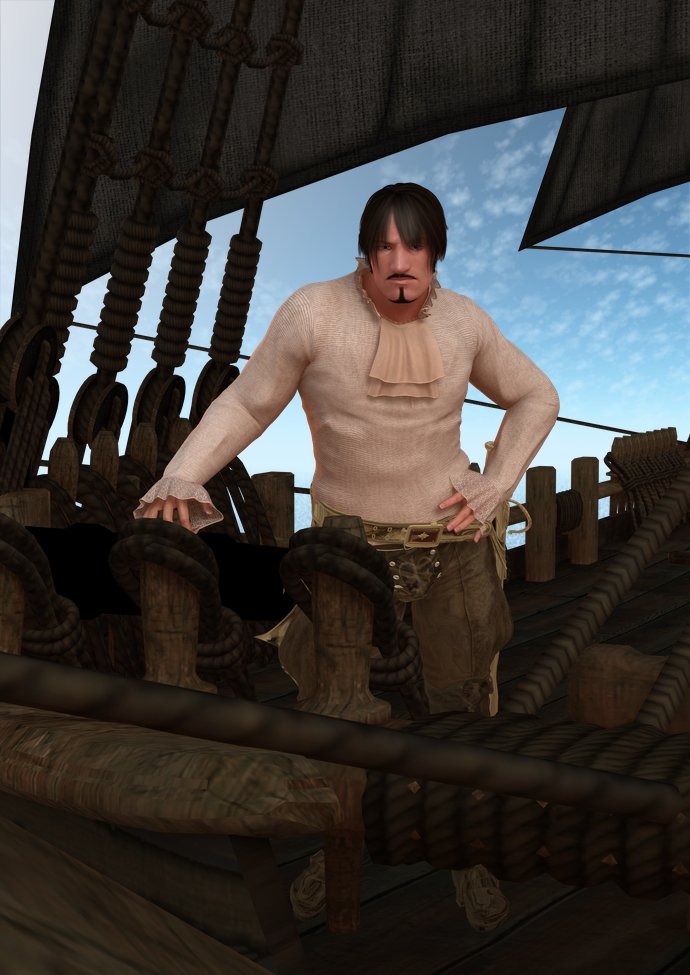Montreal, 1717
Gerard la Russo rushed up the front steps of the Grand Cathedral, praying with every step his daughter Renard was still alive.
He cursed himself for not keeping a closer eye on the teen.
This, of all days!
Today, young Marlon Wiese was wedding Claudette Dupris in a forced match between the rich merchant’s son and the daughter of an impoverished Seigneur. Marlon’s men had kidnapped the girl, his daughter’s best friend, and held her these past weeks while this travesty of justice had been pushed through by his family. Finally, with the support of the governor, the wedding day had come, and the two houses were to be joined as one.
And now, Rennie, not yet recovered from the beating she’d sustained the night of the kidnapping, had disappeared along with several of his other students.
The armed men who loitered outside the church entrance saw him coming, and made a move to stop him, only to fall back and away under the aging musketeer’s gaze.
They were paid men, but not that well.
Then Gerard reached the door, paused for a brief moment to pray for God’s mercy, and pulled it open to step inside.
He expected chaos, blood- death.
His adopted daughter was perhaps the best fighter he had ever seen, and her talent for the arts of war amazed even him at times. At sixteen, she was as good a swordswoman as he had been at his peak of twenty-five! She kept this talent hidden for the most part, not wanting to outdistance her father in front of their company, but he knew from their sparring was a fearsome talent she could be.
Tabernac! All of New France would know her strength now! It would be here on display!
He could only hope that he was in time to prevent it.
But when he got inside, Gerard came up short.
The organ droned, incense hung leisurely in the air, and the chatter of the small crowd was most peaceful.
At the front of the cathedral, the Bishop of Montreal chatted amiably with The Troll, that disgusting henchman of the Wiese family. Near him, Marlon stood, having his suit checked by his mother, while other men stood about in what they could cobble together for the occasion. Claudette’s father was in the second row with the other landed gentry, looking grave.
There was no sign of Rennie or the others.
Or trouble at all.
Puzzled, Gerard spotted his neighbor Madam Tusseau in one of the pews, and slipped in to sit next to her.
“Madam.”
“Ah, Monsieur Russo. Come to watch the happy occasion?”
“Yes…I had thought it would be…quite the show.”
“Oh, I’m sure it will be.” She said, looking a little tired. “If the bride is done her confession.”
“Pardon?”
“The bride, she asked for confessional so that she could enter into this marriage with a clean record before God. Although, I never would have guessed such a respectful little thing would have so much to confess. She has been in there for some time.”
Gerard nodded sadly. It was likely Claudette was hiding in that wooden cabinet at the front, trying to avoid her fate. But that would only last so long, eventually, she would need to come out.
Unless…
“Madam,” he commented. “I am most surprised the bishop himself is not taking the confessional.”
“Oh,” she answered. “The bride requested one of the new priests do it. I’m sorry, I don’t know his name.”
“Youngish fellow?” Gerard offered. “A bit swarthy?”
“Yes, that sounds right. Do you know him?”
The former musketeer nodded. “I believe I might. Has anything happened since young Claudette entered that box? Anything which might disturb the sanctity of the church?”
She looked at him, surprised.
“Why yes, how did you know? A young fellow came in shouting just a few minutes ago- said his father was dying and he needed the bishop to give absolution. Of course the bishop said no, but the young man was most determined. He got quite angry, and several of the men with the Wiese family ejected him.”
Hearing this, Gerard wished Madam Tusseau a good day and left the church as quickly as he could.
* * *
Gerard found them at the docks.
Rennie and a small group of his other students were bidding farewell to a smallboat being rowed out to one of the merchantman tallships anchored just off the river’s shore. Aboard the boat, a cloaked figure waved a sad, pale hand of goodbye.
When they saw him, the other students scattered like birds, leaving only his daughter.
“If you planned to join the priesthood, you could have at least warned me.” He said, stepping up next to her.
“I was afraid you may have stopped me.” Rennie answered, her eyes never leaving the smallboat.
“Stop you? No.” Gerard shook his head. “Although I must say, I am impressed you got the bishop to go along with it.”
She smiled, faintly. “He visits Michelle’s mother twice a week, to discuss the ways of sin.”
“Ah. And here I was worried that you’d put your sword before your head.”
“Sounds like a good way to get something cut off.” Rennie commented, using one of Gerard’s own truisms.
The old soldier looked at her, suddenly unable to believe that the woman standing next to him was his own adopted daughter. Had the years passed so quickly? Had she really matured so?
“She’s going to stay with relatives in France. Her father arranged it.” Rennie said with resignation. “I shan’t see her again.”
“You don’t know that.”
“I do.”
The silence hung there for a time between them as a small cloaked figure climbed aboard the distant ship, and waved goodbye.
Rennie waved back, and then, finally, turned and started to walk away.
“Where are you going?” Gerard asked, marching after her.
“To prepare. Marlon will want revenge.”
“But, how is he to know you were responsible?”
Rennie paused to give him a wide toothy grin. “I left a note in the confessional.”
Gerard la Russo looked at his daughter in shock, and then started to laugh.
He laughed deep. He laughed long. He laughed hard.
Then, when he was done laughing, a sharp, cruel glint appeared in his eyes.
“That’s my girl.”
FIN
Enlarge

This marks the end of the Fox Cycle, I hope you’ve enjoyed reading it. If you want to know more about where the name comes from and what inspired this series of stories then check my blog for more details.
Thanks!
Rob
* * * * * * * * * Want to put a little something in my tip jar out of appreciation? Click here and donate!
